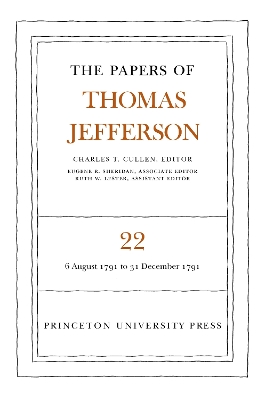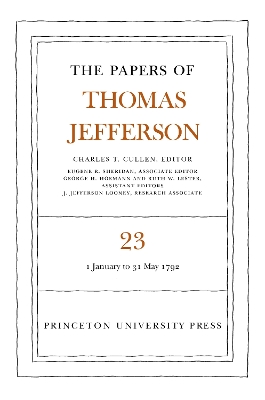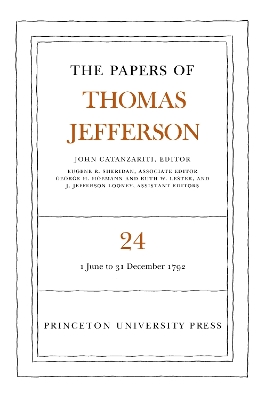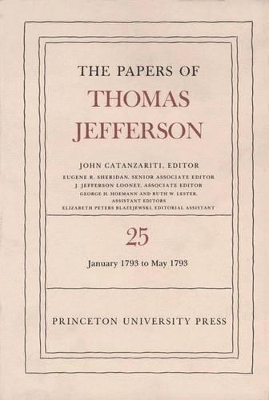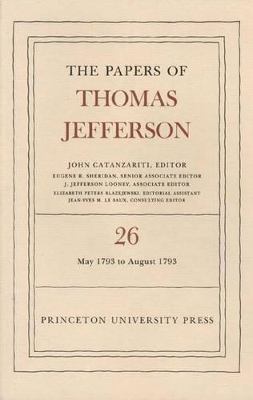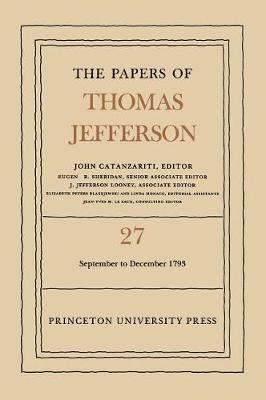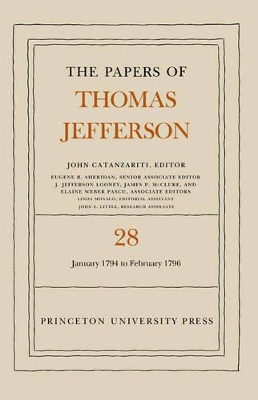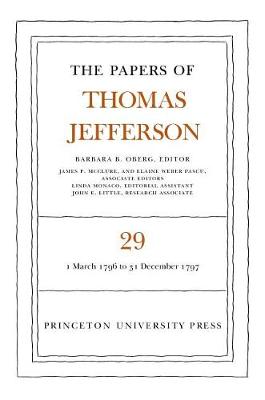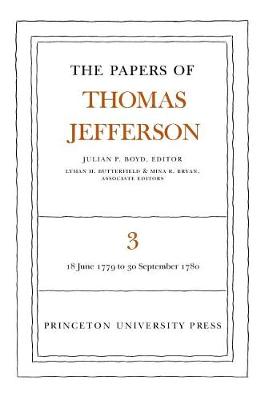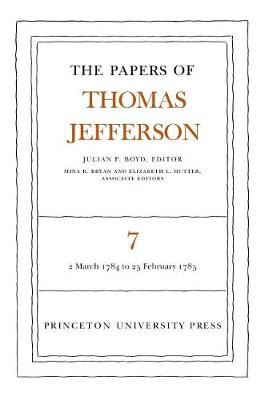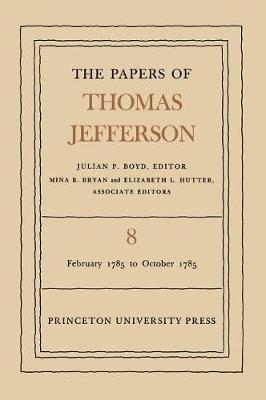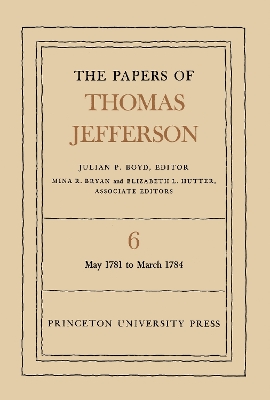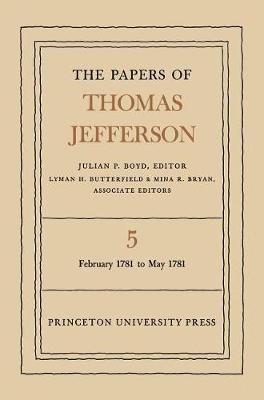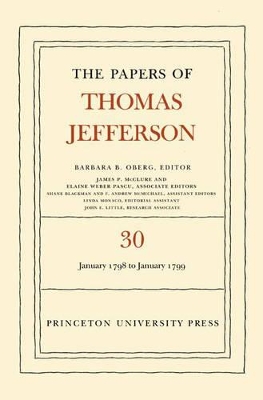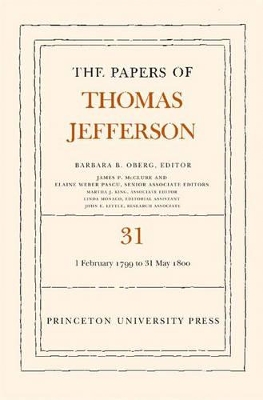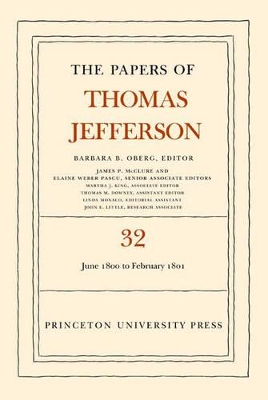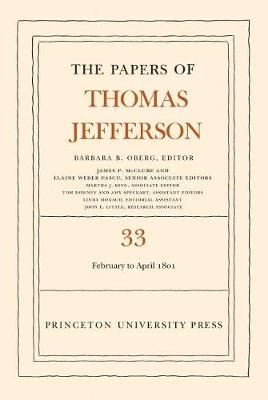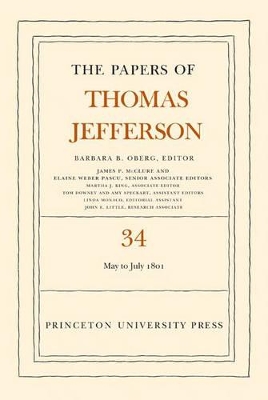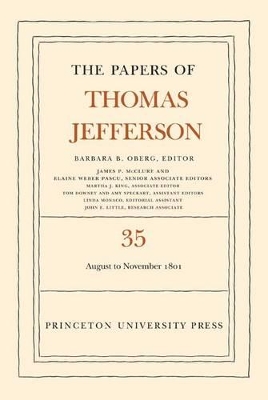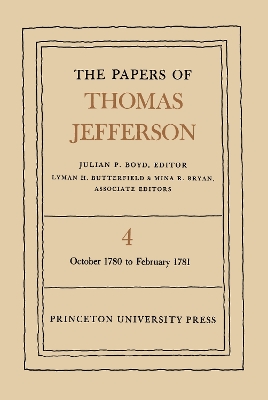Papers of Thomas Jefferson
43 primary works • 45 total works
Book 61
Ascertaining that Jefferson collected and intended only those documents from his tenure as Secretary of State to be used to challenge the Federalist interpretation of Washington's administration, the present editors publish the Anas notes not as compiled late in Jefferson's life or as amplified by others, but in chronological order, in the context in which they were written. Also discovered during the preparation of this volume was a new, later date or that portion of Jefferson's famous Espistolary Record written in his own hand.
Book 62
Book 63
In letters to President Washington, Jefferson insists that Hamiltonian policies pose a fundamental threat to American republicanism, and in other documents he sets forth remedies for the defects he sees in Hamilton's system. During this period he also finds time to investigate the ravages of the Hessian fly on American wheat and to make plans to remodel Monticello.
Book 64
Testifying to the catholicity of Jefferson's interests, this volume also deals with his efforts to promote a voyage of western exploration by the noted French botanist Andr Michaux, his observation of the first manned balloon flight in America by the celebrated French aeronaut Jean Pierre Blanchard, and his concern for expediting work on the new national capital.
Book 65
Grappling with the threat of war with Spain, Jefferson involves himself equivocally in a diplomatically explosive plan by Genet to liberate Louisiana from Spanish rule. In this volume Jefferson also plays a decisive role in resolving a dispute over the design of the Capitol and plans agricultural improvements at Monticello in preparation for his retirement to private life.
Book 66
Disappointed by Washington's tepid response to his criticisms of Hamilton's fiscal policies, frustrated by the Treasury Secretary's rising influence over American foreign policy, and eager to enjoy uninterruptedly the pleasures of domestic life, Jefferson retires from office on 31 December 1793, determined never again to suffer the torments of public life. Volume 27 contains a supplement that covers some 270 documents for the period 1764-93 that have been found or reclassified since the publication of the last supplement in Volume 15.
Book 67
Although in June, 1795, he claims to have "proscribed newspapers" from Monticello, in fact he never entirely cuts himself off from the world. At the end of that year, he takes pains to ensure that he will have two full sets of Benjamin Franklin Bache's Aurora, the influential Republican newspaper, one set to be held in Philadelphia for binding and one to be sent directly to Monticello.
Book 68
In addition, Luther Martin publicly challenged Jefferson's treatment, in Notes on Virginia, of the famous oration of Logan. Jefferson became president of the American Philosophical Society and presented a paper describing the fossilized remains of the megalonyx, or "great claw." At Monticello he evaluated the merits of threshing machines, corresponded with British agricultural authorities, sought new crops for his rotation schemes, manufactured nails, and entertained family members and visitors.
Book 69
Book 70
Book 71
Book 72
Book 73
Book 74
This endeavor reflected his struggle to make sense of the political direction of the nation in times he could neither comprehend nor accept. Jefferson continued to engage in scientific pursuits and fulfill his role as a promoter of American science and learning. He was reelected to the presidency of the American Philosophical Society, to which he presented his paper on the moldboard plow. He corresponded on American Indian languages, astronomy, and the Anglo-Saxon language. He longed for Monticello, and, as Jefferson had learned before, his property fell into neglect when he was away on public business. Renovations to the house slowed, supplies for the nailery were disrupted, and he had to arrange for the sale of his crops through intermediaries. With the prices of wheat low, he was drawn back into financial dependence on tobacco.
Book 75
And Jefferson consults Joseph Priestley and Pierre Samuel Du Pont de Nemours about the curriculum for a projected new university in Virginia. While continuing the reconstruction of Monticello, he mourns the death of the infant girl of his younger daughter, Mary Jefferson Eppes.
Book 76
Jefferson calls Burr's conduct "honorable & decisive" before prospects of intrigue arise as the nation awaits the decision of the House of Representatives. As the volume closes, the election is still unresolved after six long days of balloting by the House.
Book 77
Among these letters is one from Catharine Church, who remarks that only women, excluded as they are from political favor or government employment, can be free of "ignorant affectation" and address the president honestly. Jefferson also initiates preparations for a long cruise by a squadron of American warships, with an unstated expectation that their destination will probably be the Barbary Coast of the Mediterranean.
Book 78
On the twenty-fifth anniversary of the Fourth of July, Jefferson entertains around one hundred citizens, including a delegation of five Cherokee chiefs. And on 30 July, Jefferson leaves the Federal City for two months at Monticello.
Book 79
He dispatches a letter to his heads of department outlining "the mode & degrees of communication" for conducting their business. In mid-November, he enters a period of intense activity in the preparation of his first annual message to Congress, soliciting suggestions but personally drafting the document that he will submit in writing in early December.
Book 80
